Just recently, AMD officially announced the release of its new AMD Ryzen 7000 Series lineup of Desktop CPUs, which are powered by AMD’s brand-new Zen 4 microarchitecture, which works based on an optimized, high-performance TSMC’s N5 5nm process node.
The company’s new lineup of AMD Ryzen 7000 Series Zen 4 CPUs brings Desktop PC users a total of four (x4) different CPU models, which can feature from as little as 6 Cores and 12 Threads up to a super-impressive 16 Cores and 32 Threads, depending on what CPU model you decide to go with, of course.
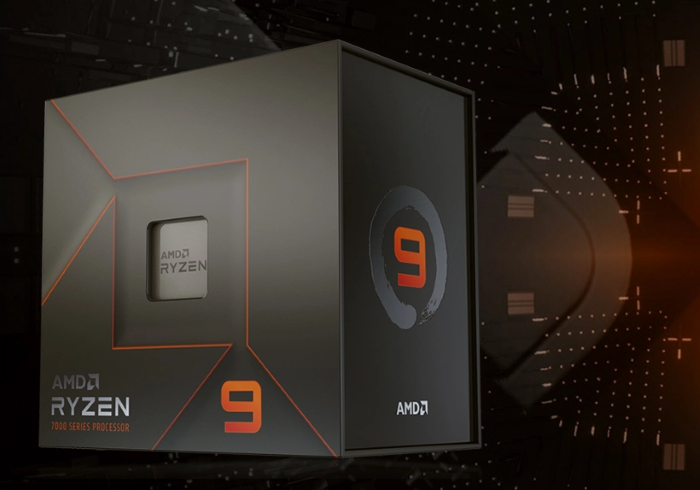
Moreover, the clock speed frequencies offered by the AMD Ryzen 7000 Series CPUs can stretch up to boost clocks of 5.7 GHz, along with an impressively large 80MB of cache.
With powerful specifications like these, AMD was confident enough to claim on its Official Press Release that its 16-Core Ryzen 9 7950X – which is the company’s highest-end flagship model from their newly-released Ryzen 7000 Series Desktop processor lineup – is currently the world’s fastest and most advanced PC processor available for purchase, from which PC enthusiasts, hardcore gamers and content-creators alike can all expect to be offered a “dominant, market-leading performance, along with a leadership energy efficiency”, as the company proudly stated on its official announcement.
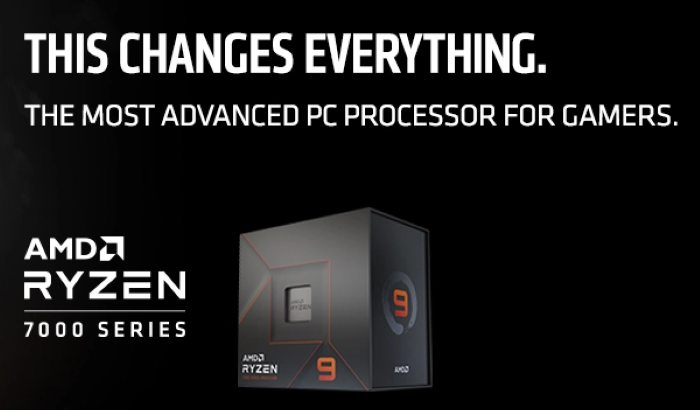 We’ll now have a deeper look at each of the four (x4) CPUS that are part of AMD’s newly released Ryzen 7000 Series Desktop processor lineup.
We’ll now have a deeper look at each of the four (x4) CPUS that are part of AMD’s newly released Ryzen 7000 Series Desktop processor lineup.
AMD Ryzen 7000 Series Zen 4 CPUs – Specifications
Starting with the lower-end model from AMD’s newly released Ryzen 7000 Series Zen 4 CPUs, we have the Ryzen 5 7600X, which boasts 6-Cores, 12-Threads, a standard CPU Speed of 4.7 GHz and a maximum boost clock speed of 5.3 GHz, along with a 38MB cache, and 105W TDP (thermal design power – i.e. the maximum heat this CPU can use in watts).
The following model would be the Ryzen 7 7700X, which boasts 8-Cores, 16-Threads, a standard CPU Speed of 4.5 GHz and a maximum boost clock speed of 5.4 GHz, along with a 40MB cache, and 105W TDP.
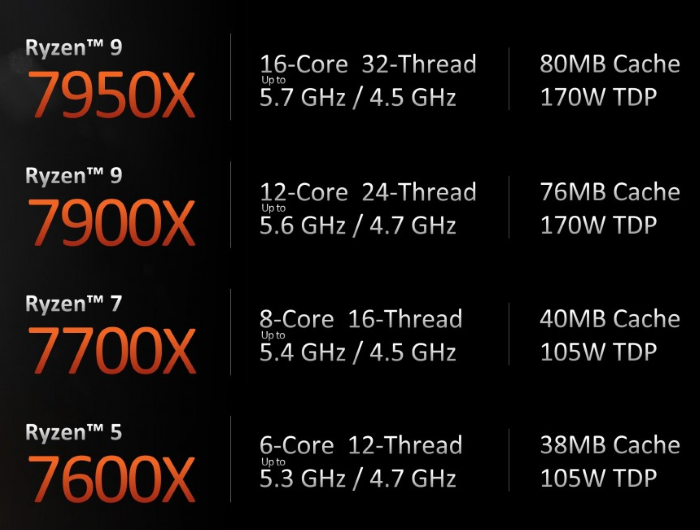 Following up, there’s the Ryzen 9 7900X, which boasts 12-Cores, 24-Threads, a standard CPU Speed of 4.7 GHz and a maximum boost clock speed of 5.6 GHz, along with a 76MB cache, and 170W TDP.
Following up, there’s the Ryzen 9 7900X, which boasts 12-Cores, 24-Threads, a standard CPU Speed of 4.7 GHz and a maximum boost clock speed of 5.6 GHz, along with a 76MB cache, and 170W TDP.
Last but not least, we have the Ryzen 9 7950X, which, as said earlier, is AMD’s highest-end flagship model from their newly-launched Ryzen 7000 Series Desktop processor lineup. The Ryzen 9 7950X boasts a total of 16-Cores, 32-Threads, a standard CPU Speed of 4.5 GHz and a maximum boost clock speed of 5.7 GHz, along with an 80MB cache, and 170W TDP.
Zen 4 Microarchitecture & Benchmarks
As most PC enthusiasts were already anticipating, AMD’s new Zen 4 Microarchitecture was expected to be a big step for AMD, and from the specifications announced by the company, it certainly looks like PC users have absolutely no reasons to be disappointed.
With the release of its new Zen 4 Microarchitecture, AMD advertised the performance gains offered by their Zen 4-based Ryzen 7000 Series by specifically highlighting gaming and content creation as the two scenarios on which PC users will benefit the most.
As mentioned before, AMD’s new Zen 4 Microarchitecture was upgraded to leverage an optimized, high-performance TSMC’s N5 5nm process node, which is exactly what allows AMD’s new Ryzen 7000 Series Zen 4 CPUs to utilize up to 16 Cores and 32 Threads, just like their highest-end flagship model – the Ryzen 9 7950X processor – has to offer.
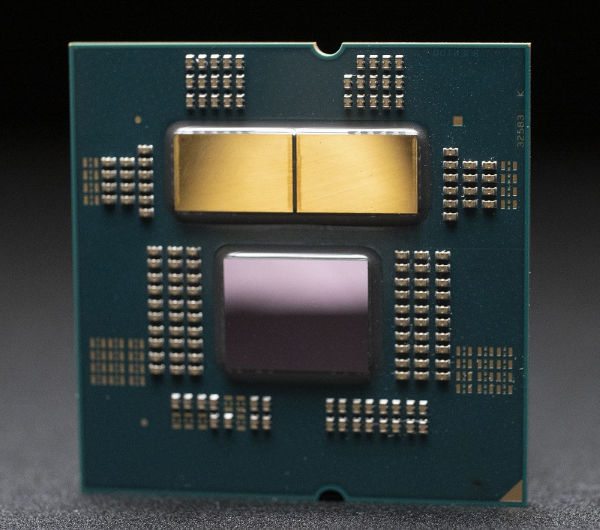
So, when it comes to the level of performance offered by the newly released AMD Ryzen 7000 Series CPUs, we’ll mostly be highlighting the performance improvements offered by the AMD Ryzen 9 7950X, with a short side-note about the Ryzen 5 7600X at the end.
By leveraging its new Zen 4 microarchitecture, in comparison to AMD’s previously-released Ryzen 9 5950X CPU (which was part of the last generation released before the Ryzen 7000 Series), AMD Ryzen 7950X processor enables single-core performance improvement of up to +29% over its predecessor, up to 44%~45% more compute (i.e. faster processing) for content creators in POV Ray, as well as up to 15% faster gaming performance in select titles, and also up to 27% better performance-per-watt.
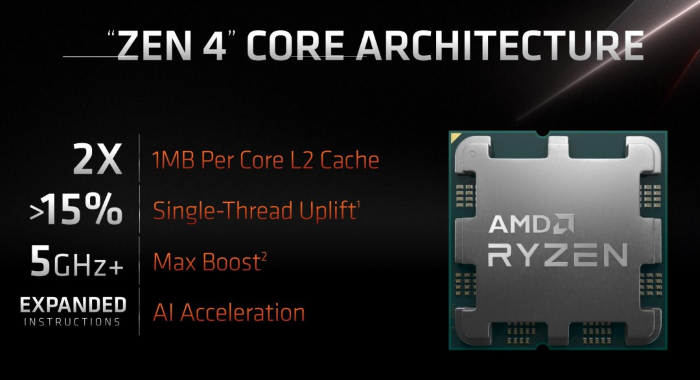 At the top of the stack, AMD’s new 16-Core Ryzen 9 7950X processor also offers up to 57% better content creation performance in V-Ray Render compared to the competition (such as Intel’s Core i9-12900K processor).
At the top of the stack, AMD’s new 16-Core Ryzen 9 7950X processor also offers up to 57% better content creation performance in V-Ray Render compared to the competition (such as Intel’s Core i9-12900K processor).
From the various testing trials performed by AMD for its newly-released Ryzen 7000 Series processors, the company was able to achieve up to a 47% improvement in energy efficiency in comparison to Intel’s Alder Lake processor.
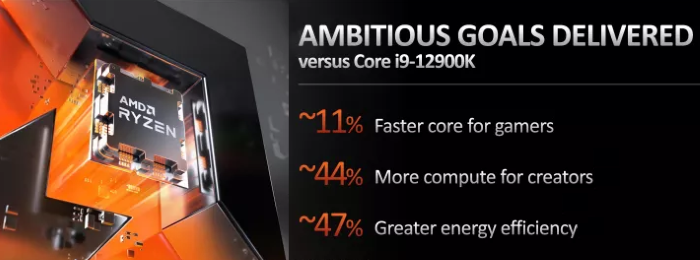 In fact, even AMD’s Ryzen 5 7600X 6-Core processor (which is the lower-end model from their Ryzen 7000 Series) is still capable of offering users an average of 5% faster gaming performance across select titles than Intel’s top-spec Core i9-12900K processor.
In fact, even AMD’s Ryzen 5 7600X 6-Core processor (which is the lower-end model from their Ryzen 7000 Series) is still capable of offering users an average of 5% faster gaming performance across select titles than Intel’s top-spec Core i9-12900K processor.
Still, note that Intel’s upcoming 13th-gen CPUs are also expected to deliver some big improvements, so keep that in mind.
COMPATIBILITY
Of course, to utilize any of AMD’s newly released Ryzen 7000 Series Zen 4 CPUs, you’ll obviously require a compatible motherboard.
While, AMD also revealed four (x4) new Socket AM5 motherboard models together with the announcement of its Ryzen 7000 Series Desktop processors, the company noted that all of its new Ryzen 7000 Series Zen 4 CPUs will still be compatible with their older AM4 motherboards by stating that it expects them to “coexist for quite some time”.
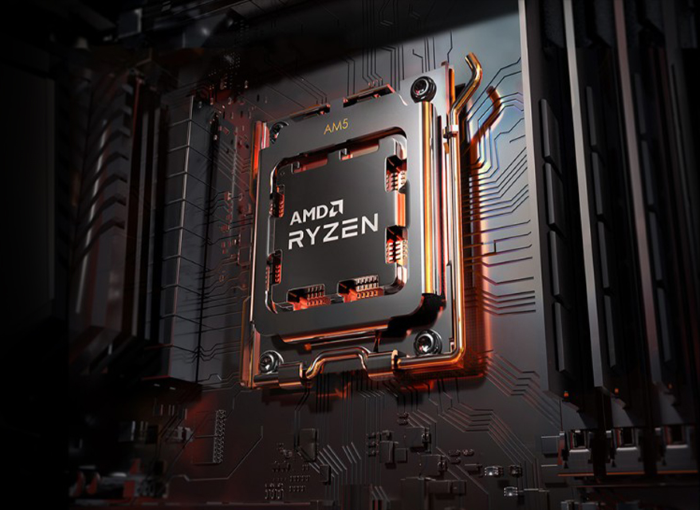 This means that customers purchasing any of AMD’s new Ryzen 7000 CPUs aren’t necessarily required to purchase a new motherboard just to be able to use these new CPUs, which is great, honestly.
This means that customers purchasing any of AMD’s new Ryzen 7000 CPUs aren’t necessarily required to purchase a new motherboard just to be able to use these new CPUs, which is great, honestly.
Nevertheless, know that AMD’s new Socket AM5 motherboard models will also add support to premium features such as DDR5 memory and PCIe Gen 5.
OTHER NOTABLE FEATURES / FUNCTIONALITIES
New 6nm I/O die
Beyond the core, thew new AMD Ryzen 7000 Series processors will also feature an all-new 6nm I/O die, which essentially enables hardware-accelerated video encode/decode, light-duty graphics work, and also support to multi-display.
PRICING & AVAILABILITY
Regarding the price-tags for AMD’s new Ryzen 7000 Series Zen 4 CPUs, know that prices will start at just $299 for their lower-end Ryzen 5 7600X, with the Ryzen 7 7700X following at just $399, then the Ryzen 9 7900X at $549, and finally their high-end Ryzen 9 7950X 16-Cores / 32-Threads processor, which will go for $699 (which is $100 cheaper than its predecessor, mind you).
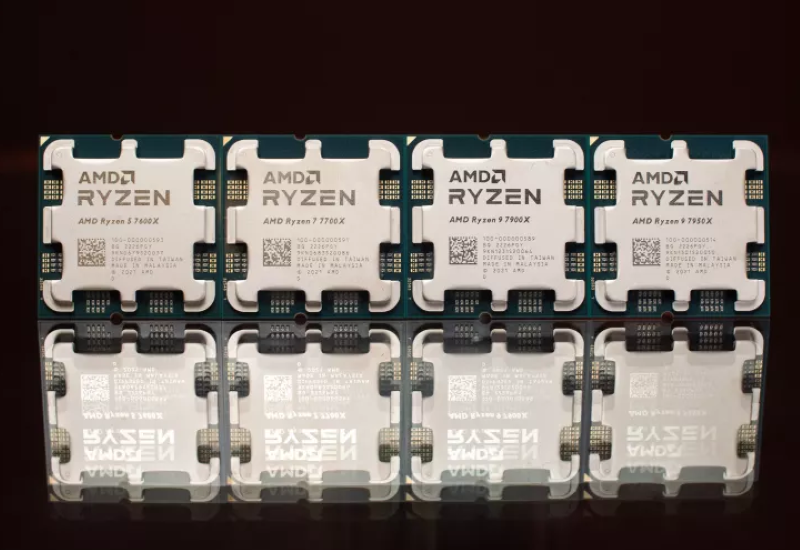
You can find all AMD Ryzen 7000 Series Zen 4 CPUs already available for purchase at Antonline’s official shopping page, which will be acting as one of the major retails for AMD’s new lineup of CPUs.
For nearly 30 years, Antonline has served as America’s go to resource for cutting-edge gaming and computer technology. The company provides the most competitive prices on premium tech and exciting deals for the gaming community, like AMD’s powerhouse processor.
Fans are encouraged to act quickly, as these processor chips are expected to sell out rather quickly due to currently being in high demand.





